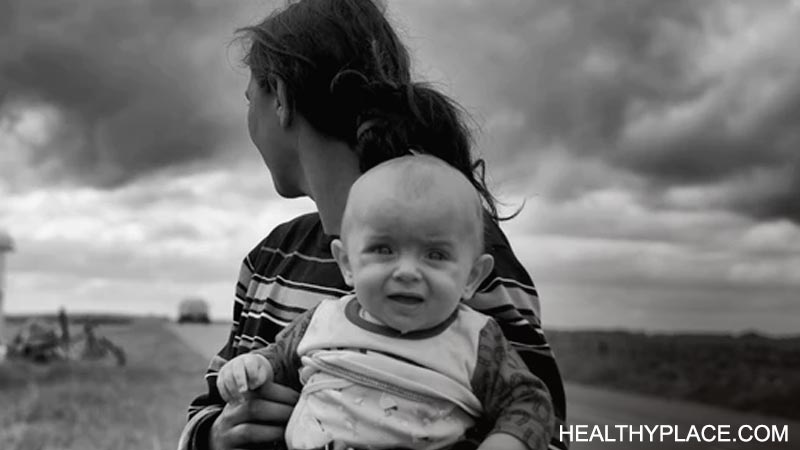‘Good Enough Parenting’ Has Its Time and Place

‘Good enough’ parenting is human parenting. ‘Good enough’ parents aren’t perfect parents, but they are indeed good parents. Here, learn why ‘good enough parenting’ is perhaps the best parenting and its time and place in your kids’ lives.
The concept of being a good enough parent originated in 1953 with a British pediatrician and psychoanalyst named Donald Winnicott. Through observation, study, and practice, Winnicott concluded that children fare better when their mothers (true to his time, Winnicott referred exclusively to mothers) weren’t perfect but made mistakes. In other words, they were good enough.
The ‘good enough’ parent runs counter to the myth of the perfect parent. This is the notion that parents must live for raising their children, being constantly perfect, or the children might do poorly in school, activities, social relationships, and overall happiness.
According to Dr. Susan Woodhouse of Lehigh University (Lehigh University, 2019), her research on how and why infants attached to their parents indicates that even in this crucial stage of development, parents need to excel approximately 50 percent of the time. The other half can be ‘good enough,’ and the baby will still form the healthiest attachment style and thrive. Evidently, the time and place for ‘good enough parenting’ is every day in many places as long as parenting exceeds that at least half the time.
So What is ‘Good Enough Parenting?’
Good enough parenting is a style of parenting that is warm, positive, nurturing, patient, and loving—but flawed. The imperfect parent makes mistakes, even fails, but always get up and tries again ("Recovering from Parenting Fails").
‘Good enough parenting’ has certain components, among them:
- Meeting kids’ basic needs for food, shelter, clothing, security, and love
- Putting kids’ needs above their own but knowing that there will be exceptions to doing so
- Providing structure, consistency, and routing, but not upholding them rigidly
Parents themselves have characteristics that make them ‘good enough.’ ‘Good enough parents:
- Don’t strive for perfection, and don’t expect their kids to be perfect
- Strive to understand and accept their kids as they are, not as the parents think they should be
- Are present-minded rather than stuck in mistakes of the past or pushing kids toward a successful, distant future
- Provide kids’ needs without indulging them (parents will say no to some things)
- Confident in their positive parenting knowing that mistakes and imperfections don’t make them bad parents
- Don’t worry or obsess about what other parents might be thinking or doing
- Allow their kids to be kids instead of pressuring them to be perfect or highly intelligent or talented
In being who they are and doing what they do, ‘good-enough’ parents help their kid develop resiliency. Their children are better equipped to experience disappointments and adversity and bounce back. These parents know that mistakes don’t break kids; further, dealing with imperfection prepares kids for the annoyances and ups and downs of life. ‘Good enough parents’ teach kids to forgive and to apologize, to have realistic standards for themselves and others, to be self-reliant, and to simply be good people.
Some argue that the ‘good enough parent’ is a gift. “Each time we let our children down and they get through it, they get just a little bit stronger. That is the gift of the good enough mother, and it’s time we all embraced it.” (Naumburg, n.d.)
Good Parenting vs Bad Parenting
There’s an important distinction between parenting that’s good enough and parenting that is bad. ‘Good enough’ is still good. It just isn’t perfect, which is an impossible standard anyway. ‘Good enough’ parents do make mistakes and wrong decisions. Sometimes their choices are bad, but their parenting itself isn’t bad.
Bad parenting is parenting that harms children. It provides no routines or consistency or limits, or, conversely, too many rules and limits. People with bad parenting skills constantly put themselves before their kids. They’re minimally involved in their kids’ lives, and they often fail to meet kids’ basic needs.
Sometimes, bad parents are abusive parents. Through neglect, physical abuse, sexual abuse, verbal abuse, and/or emotional abuse, these parents intentionally inflict damage onto their children.
Good parenting and ‘good enough’ parenting is a direct contrast to bad parenting. Good and ‘good enough’ parents always operate out of love. They meet their kids’ needs and support them daily through words and action. If they think they’ve harmed their child, they apologize and talk it through. The harm is never intentional or abusive.
When it comes to parenting, ‘good enough’ truly is good enough. Perhaps allowing yourself and your kids to be human and develop all the positive characteristics that go with the acceptance of imperfection makes you, ironically, the perfect parent. But that goes back to stress and pressure which damages you and your whole family. It’s better to remain a ‘good enough’ parent, perfectly imperfect.
APA Reference
Peterson, T.
(2022, January 11). ‘Good Enough Parenting’ Has Its Time and Place, HealthyPlace. Retrieved
on 2026, February 2 from https://www.healthyplace.com/parenting/parenting-help/good-enough-parenting-has-its-time-and-place



